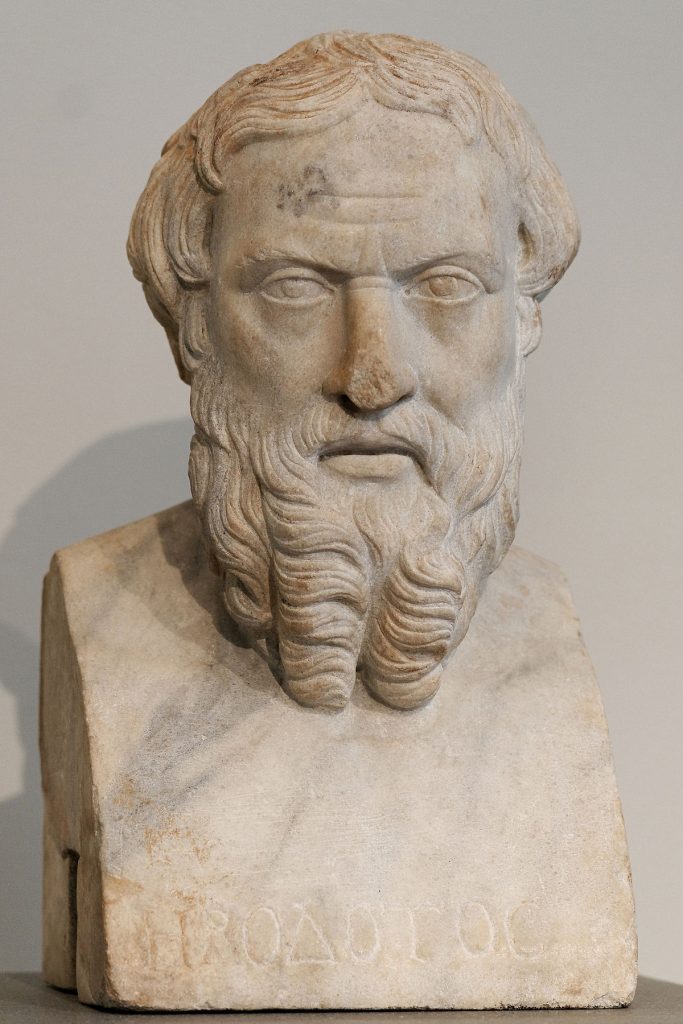An Ancient Count of St Germain February 11, 2018
Author: Beach Combing | in : Ancient , trackbackIf you want to write a wacko book about humanoid lizards and immortals with kilts and poor sword etiquette living among us this might just be the passage for you. Beach’s reading from today is from Herodotus (‘I never disappoint’) of Halicarnassus and the hero is one Aristeas (seventh century BC), known among the Greeks as a poet and an adventurer.
It is said that this Aristeas, who was as nobly born as any of his townsmen, went into a fuller’s shop at Proconnesus and there died; the fuller shut his workshop and went away to tell the dead man’s kinsfolk, and the report of Aristeas’ death being now spread about in the city, it was disputed by a man of Cyzicus, who had come from the town of Artace, and said that he had met Aristeas going towards Cyzicus and spoken with him. While he vehemently disputed, the kinsfolk of the dead man had come to the fuller’s shop with all that was needful for burial; but when the house was opened there was no Aristeas there, dead or alive. But in the seventh year after that Aristeas appeared at Proconnesus and made that poem which the Greeks now call the Arimaspeia [and which does not survive, sigh], after which he vanished once again.
So this is someone with a difficult relationship to mortality: the implication is that he travels into the mysterious lands to the north of the Balkans among the Hyperboreans. But just see what he gets up to next.
But this, I know, befell the Metapontines in Italy, two hundred and forty years after the second disappearance of Aristeas, as reckoning made at Proconnesus and Metapontium shows me: Aristeas, so the Metapontines say, appeared in their country and bade them set up an altar to Apollo, and set beside it a statue bearing the name of Aristeas the Proconnesian; for, he said, Apollo had come to their country alone of all Italian lands, and he himself – who was now Aristeas, but then when he followed the god had been a crow – had come with him. Having said this, he vanished away. The Metapontines, so they say, sent to Delphi and inquired of the god what the vision of the man might be; and the Pythian priestess bade them obey the vision, saying that their fortune would be the better; having received which answer they did as commanded. And now there stands beside the very image of Apollo a statue bearing the name of Aristeas; a grove of bay-trees surrounds it; the image is set in the market-place.
If we ever get a time machine a great game would be to see who could build up a religious cult the quickest in the Mediterranean with a box of matches and a box of dodgy Chinese fireworks. Beach might note that Apollo was, so the Greeks claimed, reverenced among the Hyperboreans, beyond the north wind. Other St Germains: drbeachcombing AT gmail DOT com



